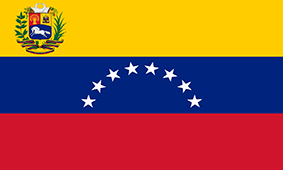
Guaido calls for groundswell inspired by Evo exile

Opposition leader Juan Guaido, who is recognized as interim president by most Western countries, is seeking to reignite a popular groundswell that has largely petered out since his ebullient public oath on 23 January and a botched military uprising on 30 April.
The popular summons is a big gamble for Guaido, who is hoping to seize on the political momentum sparked by the 10 November resignation of Bolivian president and Maduro ally Evo Morales, now in exile in Mexico. Venezuela, Cuba, Mexico and Argentina say Morales was the victim of a coup, and do not recognize Bolivia's interim president Jeanine Anez. Controversially, one of Anez's first moves was to recognize Guaido.
She has already gained recognition from the US, the UK and, more significantly, Russia. Moscow is one of Maduro's main international patrons, and its abandonment of Morales has unsettled Caracas. The EU has remained cautious on Bolivia so far.
Partly with Russia's help, Maduro has defied the opposition's campaign to unseat him, and overcome US financial and oil sanctions that dashed the White House's expectations for a swift political transition.
Venezuela's oil production is running around 750,000 b/d, less than a quarter of its 1990s level, but state-owned PdV has maneuvered to check further declines and sustained exports, partly by flooding Cuba with unsold cargoes.
It is not clear how many Venezuelans will march tomorrow, but Maduro and his number-two Diosdado Cabello are vowing to crack down. Maduro said yesterday that "no tolerance" would be spared in fending off paramilitary forces that he claimed would be dispatched from Colombia, a US ally. Bogota supports Guaido but regularly denies any intervention in Venezuela. Colombia houses the largest share of Venezuelan migrants that total some 5mn.
Regional oil unions that comprise the federation of Venezuelan Petroleum Workers (FUTPV) have shied away from formal support for Guaido. Many oil workers from PdV likely will protest individually if they are not working their shifts tomorrow, but a massive showing is unlikely, oil union leaders tell Argus.
Public sector health care and education unions have announced they will join Guaido's national protest.
As he has done in the past, Maduro has ordered simultaneous pro-government marches. In recent days he has also talked up a more than one-million-strong civilian militia, and security forces are heavily deployed on Caracas streets today.
Panic fuel buying is evident in Caracas, where supplies were already sharply depleted. Retail distributors association Fenegas ordered all stations to halt sales in small containers on 15-18 November to discourage the fabrication of Molotov cocktails — gasoline-filled glass bottles — that could be used to attack security forces, a senior Fenegas official tells Argus. Stations still can fuel vehicles, but all outlets in Caracas and other cities have been encouraged to close as a precaution.
Eyes on the military
The military response tomorrow will be critical. In contrast to Bolivia, where the military and police had relinquished support for Morales, Venezuela's armed forces have mostly remained on Maduro's side, less out of conviction than economic interest amid severe poverty that the government blames on sanctions.
The Maduro government is considering closing border crossings into Colombia as well as Brazil as tensions rise. Central University students have already started to clash with national guards in anti-riot gear ahead of tomorrow's formal marches, but fear of violent repression could keep many Venezuelans at home. A sparse turnout would bode ill for the opposition movement and Guaido's government in exile that has been preoccupied for months with a foreign debt imbroglio while Maduro carries on at home.
As with past opposition marches, the protest in Caracas will launch from the city's traditionally middle and upper-class eastern districts and end in Chacaito plaza, several miles from the presidential palace.


Gold price edges up as market awaits Fed minutes, Powell speech

Glencore trader who led ill-fated battery recycling push to exit

Emirates Global Aluminium unit to exit Guinea after mine seized

Iron ore price dips on China blast furnace cuts, US trade restrictions

Roshel, Swebor partner to produce ballistic-grade steel in Canada

US hikes steel, aluminum tariffs on imported wind turbines, cranes, railcars

EverMetal launches US-based critical metals recycling platform

Afghanistan says China seeks its participation in Belt and Road Initiative

Trump weighs using $2 billion in CHIPS Act funding for critical minerals

Energy Fuels soars on Vulcan Elements partnership

Northern Dynasty sticks to proposal in battle to lift Pebble mine veto

Giustra-backed mining firm teams up with informal miners in Colombia

Critical Metals signs agreement to supply rare earth to US government-funded facility

China extends rare earth controls to imported material

Galan Lithium proceeds with $13M financing for Argentina project

Silver price touches $39 as market weighs rate cut outlook

First Quantum drops plan to sell stakes in Zambia copper mines

Ivanhoe advances Kamoa dewatering plan, plans forecasts

Texas factory gives Chinese copper firm an edge in tariff war

Energy Fuels soars on Vulcan Elements partnership

Northern Dynasty sticks to proposal in battle to lift Pebble mine veto

Giustra-backed mining firm teams up with informal miners in Colombia

Critical Metals signs agreement to supply rare earth to US government-funded facility

China extends rare earth controls to imported material

Galan Lithium proceeds with $13M financing for Argentina project

Silver price touches $39 as market weighs rate cut outlook

First Quantum drops plan to sell stakes in Zambia copper mines

Ivanhoe advances Kamoa dewatering plan, plans forecasts

















